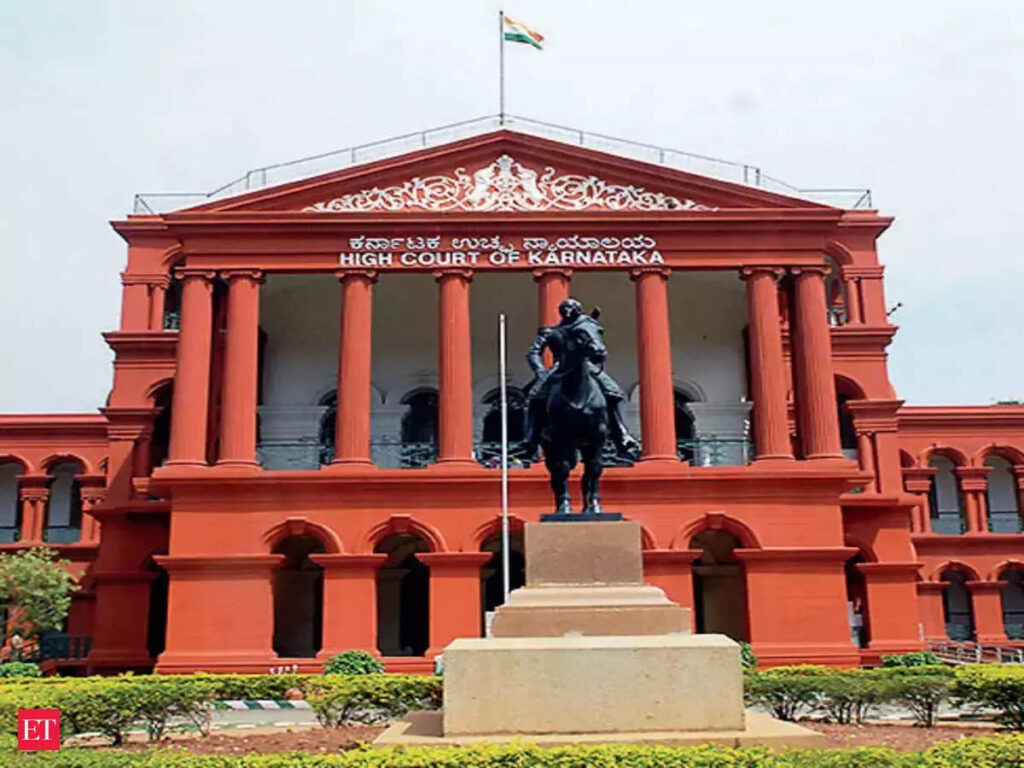Nithyakalyani Narayanan. V
The Karnataka High Court held that sexual assault on a woman’s dead body (necrophilia) is not an offence of rape that is punishable under Section 376 of IPC. The Court added that it would not come under IPC Section 377. The Bench said, “A careful reading of Sections 375 and 377 of IPC makes it clear that a dead body cannot be called a human or person. Therefore, the provisions of Section 375 or 377 would not be attracted”.
The Court said that it is high time the Central Government makes changes to IPC so as to make necrophilia an offence. The Court urged the Government to either amend Section 377 of the IPC or introduce a separate penal provision that criminalises necrophilia. The Court said, “The Central Government is hereby recommended to amend the provisions of the IPC as stated supra in order to protect the dignity of the body of the deceased in order to ensure to protect persons right of life includes right of his dead body as contemplated under Article 21 of the Constitution of India within a period of 6 (six) months from the date of receipt of certified copy of this order“.
The Court directed the State government to ensure CCTV cameras are installed in all government mortuaries and private hospitals to prevent necrophiliac offences against a woman’s dead body. The State was also requested to maintain mortuary hygiene, ensure confidentiality and privacy at mortuaries, remove infrastructural barriers and sensitise mortuary staff.
The Court was hearing an appeal against an order of the Sessions Court which convicted the appellant for murder and rape of a 21-year-old woman. The appellant claimed that as per the prosecution, the murder of the victim was committed first and then the dead body was sexually assaulted. Hence. the offence under Section 376 would not be attracted. It was argued that the act of the accused was nothing but necrophilia and there is no specific provision in the IPC to convict the accused, he ought to be acquitted.
The question before the Court was whether rape on a woman’s dead body would attract the offence of rape under Section 375 of the IPC. To explore this, the Court carefully read Sections 375 (rape) and 377 (unnatural offences) of the IPC. It was found that the two would not be applicable to the facts of the case. “It cannot be termed as rape punishable under Section 376 of the Indian Penal Code. Utmost it can be considered as sadism, necrophilia and there is no offence made out to punish under Section 376 of the Indian Penal Code.”
The conviction by the Sessions Judge was found flawed and set aside. “The said material aspect has not been considered by the learned Sessions Judge, thereby erroneously convicted the accused under the provisions of Section 376 of IPC in the absence of any provision attracting the offence under the provisions of Indian Penal Code.”
The appellant was found guilty of committing murder based on the recovery of blood-stained weapons and clothes from his house as well as a lack of explanation for incriminating circumstances. “The material on record clearly establish that, based on aforesaid circumstances the prosecution has proved beyond reasonable doubt that accused is guilt of homicidal death of deceased and the evidence on record is consistent only with the hypothesis of the guilt of accused“, the Court concluded. The conviction for the offence of murder was confirmed.
The Court observed that the dignity of a human being’s dead body must be maintained and respected. “Right to dignity is also expanded to a dead person.” It was held that the State must ensure that such crimes do not happen. But there is no specific legislation enacted in India including under the provisions of the IPC for upholding dignity and protecting the rights of a woman’s dead body, the Court said. The Government was asked to revisit the law and the Court’s registrar general was directed to send a copy of the judgment to the Central and State governments.
Advocates Hanumantharaya CH, Abhinaya K, and KV Manoj appeared for the appellant. State Public Prosecutor Kiran S Javali, and Additional State Public Prosecutor Vijaykumar Majage appeared for the respondents. Advocate Nithin Ramesh served as the Amicus Curiae.
Name of the Case: Rangaraju @ Vajapeyi v State of Karnataka
Bench: Justice B Veerappaand Justice Venkatesh Naik.


